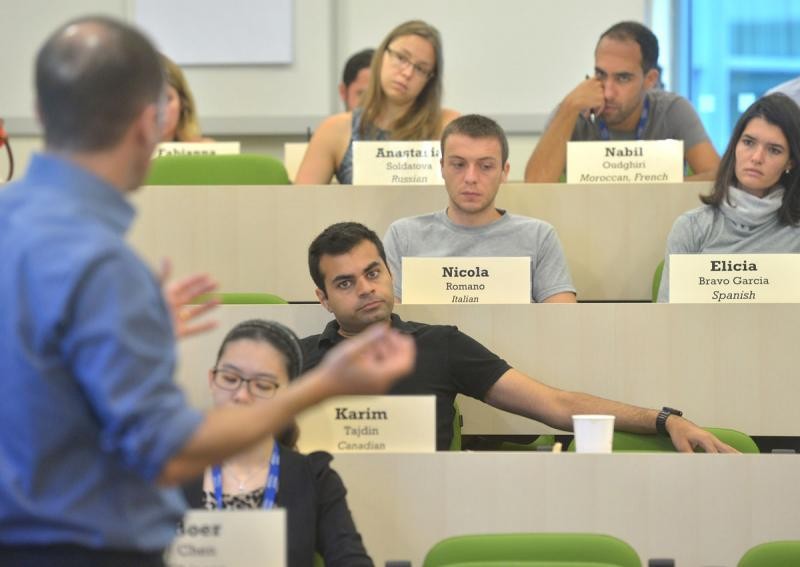80 countries represented in one cohort of MBA students

Enter a typical Master of Business Administration (MBA) class at Insead, the well-known graduate business school which has a campus in Singapore, and one would be greeted by a mishmash of cultures.
The school's MBA programme, offered at its campuses in Singapore and Fontainebleau in France, is among the most diverse in the world, with around 80 countries represented in a cohort of about 1,000 students each year.
Singaporeans, for instance, made up less than 5 per cent of last year's cohort of 1,018 students. There were 34 Singaporeans on the MBA programme last year, up from 16 in 2005.
Professor Ilian Mihov, Insead's dean who is based here, said the diverse learning setting allows students to acquire skills in dealing with cultural differences, and produces versatile graduates who can adapt to different work environments around the globe.
"Recruiters value the breadth and depth of our global talent pool as well as the flexibility of our graduates to take jobs anywhere in the world," he said.
Last month, Insead - which has a third campus in Abu Dhabi - topped an annual global ranking of MBA programmes.
In the Financial Times Global MBA Ranking, the school - which has some 400 students start their MBA studies here and another 600 at its Fontainebleau campus - placed ahead of Harvard Business School, London Business School and Wharton School of the University of Pennsylvania.
The ranking of the world's top full-time MBA programmes considers alumni career progression and diversity of students, among others.
Insead was established in Fontainebleau in 1957, and offered its one-year MBA two years later.
One of Insead's founding principles is that it would be "truly international", and no more than one-third of the students, faculty, and even its board, can be from the same nationality, according to Prof Mihov.
He said the MBA curriculum is designed to "quickly and thoroughly" prepare students for a career in international business. Group work, for instance, uses case studies from a variety of countries.
To tailor the programme to meet specific career goals, students can choose from a range of courses, from strategic cost management to negotiations.
Insead offers a one-year programme that is viewed as offering value for money. Other top schools offer two-year programmes.
This is the first time a one-year MBA has led the ranking.
Prof Mihov said: "Many participants choose our MBA as the opportunity cost of taking time off for a two-year course is too high."
Its alumni command an average annual salary of over $234,000 three years after graduation.
Despite the stellar performance, the school has no plans to increase its MBA intake, which has remained around 1,000 from 2011 to last year.
Insead realised the rising importance of Asia early on and differentiated itself from other business schools by setting up a campus here in Ayer Rajah in 2000.
"In order to be a truly international school, there was a need to venture out of Europe, and Asia was an ideal location," Prof Mihov said. "At that time, there was also a growing demand for quality business education in Asia."
Singapore was chosen for reasons including strong government support and the presence of many multinational corporations here.
Singapore Post executive vice-president of investments Chan Kiat, 44, was in the first batch of 53 MBA students from 26 countries at Insead's Singapore campus in 2000.
"(The MBA) expanded my career options and exposed me to entirely different career-development paths," he said.
"The great mix of people made all the difference."
calyang@sph.com.sg

This article was first published on February 22, 2016.
Get a copy of The Straits Times or go to straitstimes.com for more stories.